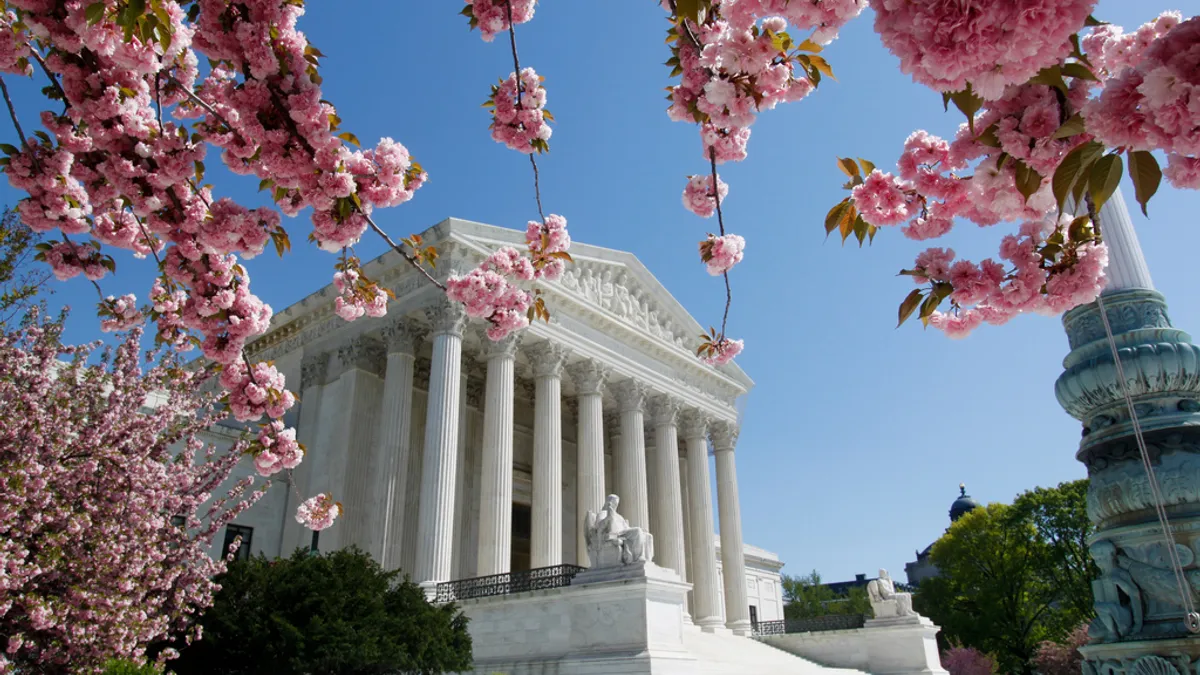Dive Brief:
- Against a backdrop of lawsuits and political statements opposing the Clean Power Plan, most U.S. utilities have been quietly moving to comply with the new mandates, with many indicating they simply see the writing on the wall.
- While more than two dozen states have filed challenges to the lawsuit, along with coal producers and some generators, the Wall Street Journal and Energy Central are reporting market forces have already moved electric utilities towards natural compliance strategies. As a result, most large U.S. utilities are staying out of the
- There are notable exceptions to the pattern: Southern Co. and the National Rural Electric Cooperative Association (NRECA) have both filed suit against the emissions regulations.
Dive Insight:
The 50 states are divided about equally when it comes to the Clean Power Plan, with over two dozen filing challenges to the rule.
Electric utilities, however, are finding much more common ground.
A multi-state challenge to the new rules, which are targeting a 32% reduction in greenhouse gas emissions, was filed last week. The lawsuit includes two dozen states, continuing a contentious battle that likely ends the case in front of the U.S. Supreme Court. But though politicians and coal companies are decrying the "blatant and unprecedented attack on coal" and "far-reaching energy regulations," utilities have backed away from the challenge and are instead embracing compliance strategies.
“Price is a larger force in electricity markets today than what Washington is doing with regulations,” according to Todd Carter, president of Panda Power Funds. Coal prices generally remain slightly below gas, but the emissions differences have led to a gradual shift towards cleaner power.
Bucking that trend, however, is Southern Co. and its four utility subsidiaries. Through its largest, Georgia Power, the company issued a statement last week saying it had filed with the U.S. Court of Appeals for the District of Columbia. According to Georgia Power Senior Vice President and Senior Production Officer John Pemberton, the new rules will require the utility to retire 4,800 MW of coal generation — more than 20% of its total capacity.
In its statement, the utility said it was suing the federal government over "potential impacts on reliability and affordability of electricity in the state of Georgia. Georgia Power is firmly committed to protecting the investments made in its operations, including generation plants across the state."
The utility said other impacts on its operations could include higher production costs and an insufficient reserve margin resulting in increased customer costs of approximately $830 million in 2016 and 2017, the utility said. And $515 million in additional costs for needed transmission projects could be required, with roughly $70 million in costs in 2016 and 2017 alone.
"Many of the costs and impacts to reliability could not be reversed once the changes have been started under EPA's plan," Georgia Power said.
Southern isn't the only utility-sector challenge, however. The National Rural Electric Cooperative Association filed in the D.C. Circuit last week as well, arguing that the "rule goes far beyond what the Clean Air Act authorizes the EPA to do," according to media relations director Debbie Wing.
NRECA represents more than 900 consumer-owned electric co-ops across the nation, many of which face steep emissions cuts under the rules. 37 individual generation and transmission co-ops filed alongside NRECA asking for the rule to be thrown out.
“These complicated regulations will force cooperatives to close power plants, which are producing affordable electricity for consumers who were counting on them for decades to come," Wing said in a release. "Co-op consumer-members will be saddled with higher energy bills as a result of this regulatory over-reach."















